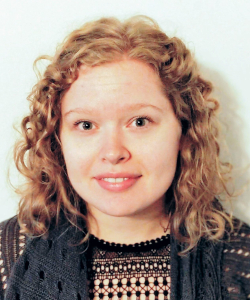Ph.D. candidate profile: Milly Romeijn-Stout
Milly Romeijn-Stout is a Ph.D. candidate at the iSchool.
When you meet someone who doesn’t know about your research, how do you describe it?
I typically say that I work with libraries to create autism inclusive programs and spaces, especially for autistic children and their families.
Who is the faculty member working closest with you? What are you learning from them?
I am co-advised by Hala Annabi and Michelle Martin. I am learning quite a bit from them. One of the most important things I am learning is how to set up, run, and report on methods like focus groups and interviews, as well as maintain strong relationships with research partners such as libraries and community organizations.
Why are you interested in this subject?
I am interested in creating Autism Ready Libraries, especially for autistic children and their families, because I saw a huge gap in this area when I was working as a children's librarian. There is a large autistic community that is unable to access the free resources that the public library provides, such as early literacy story times and other literacy engagement programs.
What impact do you hope to make in the information field through your research/dissertation?
The impact I hope to make in the library and information science field is twofold: first, I hope that my research provides a new framework for the field in regard to understanding the needs of the autistic community and implementing inclusive practices in the public library. Second, I would like my research to have a tangible impact on public libraries in the form of new trainings and resources for library employees on serving the autistic community.
What surprised you the most when digging into your research?
What has surprised me the most in my research is how prepared children's librarians are to provide inclusive early literacy services to autistic children. There is a lot of uncertainty regarding best practices, which I hope to help with, but many librarians are already using early literacy practices in their story times (such as promoting phonological awareness, for example) that have evidence of helping autistic children's early literacy skills.
What are your career goals once you graduate?
I would like to continue doing research, either in a faculty position or with a private organization, as well as continue disseminating my findings to libraries through trainings and presentations.
